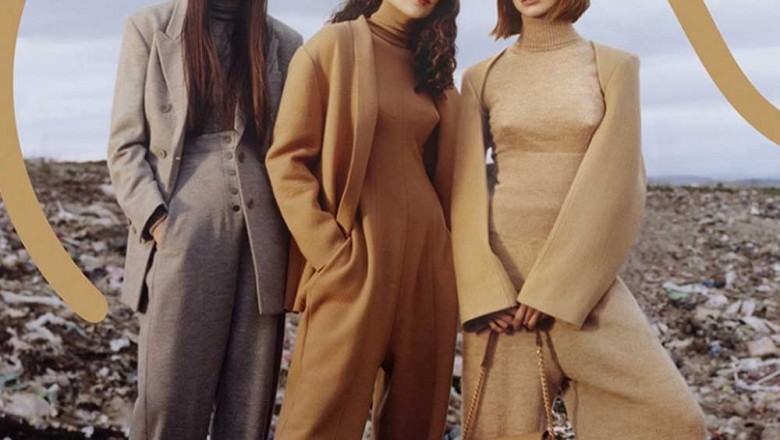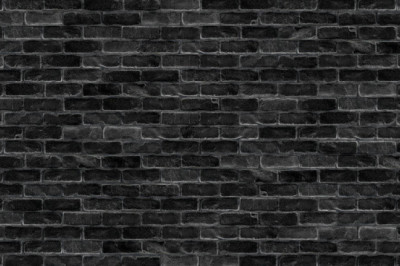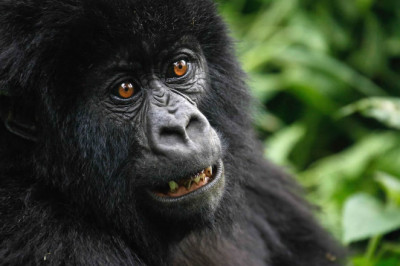views

SUSTAINABILITY REDEFINING LUXURY FASHION IN THE ERA OF NEW TEXTILE ECONOMY
Luxury has had a complex relationship with sustainability. The term luxury was originally associated with “a lifestyle of excess, indulgence and waste”, while sustainability focuses on moderate consumption of resources to ensure that our future generation would be able to meet their needs. However, luxury is also associated with setting trends. As the world is in the midst of a paradigm shift, the apparel industry is also re-organizing for the next normal, consumers have become ever more interested in sustainability topics and expect fashion players to maintain their social and environmental duties. This allows the luxury fashion industry to affirm its commitment to sustainability and as correctly said by Marie-Claire Daveu, Kering’s chief sustainability officer.
“ We have the specific responsibility to lead by example and really to move and have a strong journey on sustainability.”
Let’s look into these specific sustainable trends reshaping luxury fashion:
1 Consumers are striving to convey who they are rather than what they have: The brands successful in speaking to this new mindset and are able to deliver meaningful experiences and eliminate the guilt from the indulgence will have boundless opportunities.
2 Ethics is as important as aesthetics: Fairtrade practices and sustainable sourcing is key. Luxury companies need to ensure transparency and visibility in the entire supply chain, right from procurement of raw material to delivery of the final product to the consumer. Luxury brands such as LVMH have already embraced blockchain technology to trace their supply chain. Such technologies will help in gaining consumer confidence and trust by bringing awareness about the authenticity of the product.
3 Slow down the seasons: A survey by McKinsey & Company reports of how the consumers’ mindset is now less concerned with apparel trends and that newness would be one of the least significant characteristics when making purchases, so now might be the time to push the fashion system with less seasonality.
4 “Alternative materials” is the current buzzword: Sustainable orientation also has a major effect on the developmental phases of a consumer product and on determining the relationship between a concept and implementation. The growth of demand for materials like recycled polyester or bloom algae foam is evident in the textile industry. with materials like recycled polyester or bloom algae foam is evident. The 2020 Conscious Fashion Report by Lyst stated a 69% increase in searches for “vegan leather”, 23% for “organic cotton” and 35% for recycled plastic. They also reported that since the beginning of 2020, there has been a 37% increase in searches for sustainability-related keywords. They predict that at least 10% of all fashion purchases in 2020 will be made with sustainability in mind.
5 The transition from linear to circular business models has become a rising trend in the industry: The circular economy approach requires companies to use sustainable raw materials and close the material and product loops, as long as possible. To their advantage, luxury products also embody durability, long lifespans and transmission from one generation to the other.
6 The second-hand market of personal luxury goods: Currently valued at EUR 22 billion and rising faster than an overall luxury. The thredUP 2020 report states that resale will witness a 5X increase. This is attributed to four key drivers:
Improved authenticity guaranteed through official websites such as Vestiaire Collective
Desires for environmental purposes for shorter ownership. Wider access to popular ‘must-have’ products; The more affordable price tag.
Lately, Burberry has announced a partnership with pre-owned luxury site The RealReal, such collaborations could draw more and more consumers.
The move from competition to collaboration: Collaborations are not a new concept to the industry. They’re a proven way to boost brand awareness, experiment and reach out to new customers and have now proven to be a humbling yet effective strategy in accelerating sustainable practices.
The Fashtech era: In order to make an ethical transition in the fashion market feasible, the use of emerging technologies in the fashion industry is necessary because, as we know, digital technology has fundamentally changed society and business. Augmented reality, blockchain, IoT (Internet of Things) with artificial intelligence, and many more are changing the way customers shop. Investment in fash tech would certainly drive the sustainable value proposition of eco-friendly fabrics towards more effective processes.
While many challenges remain, sustainability is the way forward for the luxury industry. Not only new business models, the collaboration between brands, specific strategies boosting innovation in products and operations, but also monitoring progress is an opportunity for brands to communicate their values to their customers and to build loyalty and continued interest.
While there’s a long way to go, many are pledging for change- Kering, Stella McCartney, Browns, Matches Fashion as well as, H&M group, Zara and many more have already taken a lead. There are also upcoming disruptors like Upcycleluxe that are setting a mark by redefining the meaning of luxury by bringing together sustainable brands that work on similar intricacies. Upcycleluxe believes that “Green is the new luxury” and that now is the vital moment of reinvention. Here’s hoping that sustainability will be the new normal.
Let us join hands in this monumental shift and learn to adapt our lifestyle to sustainable choices. Collaborate with UPCYCLELUXE and join our sustainable community. Make that transition today!












